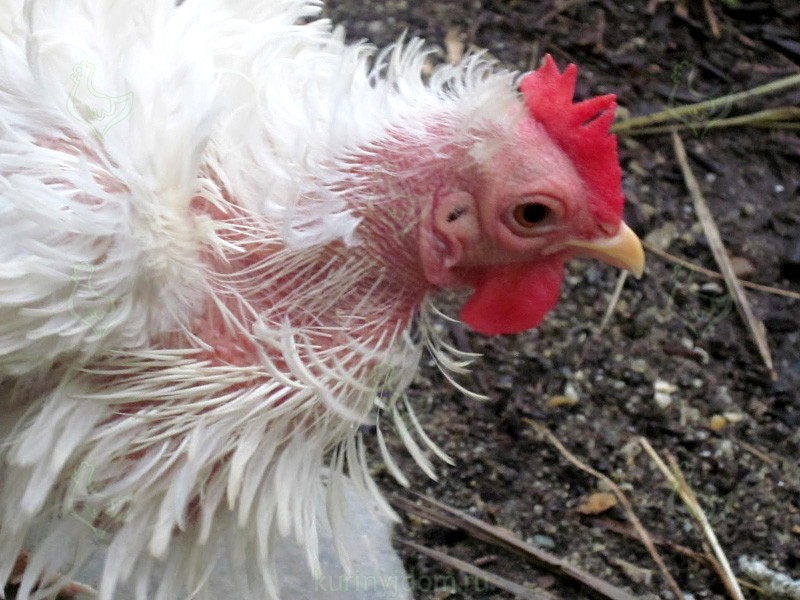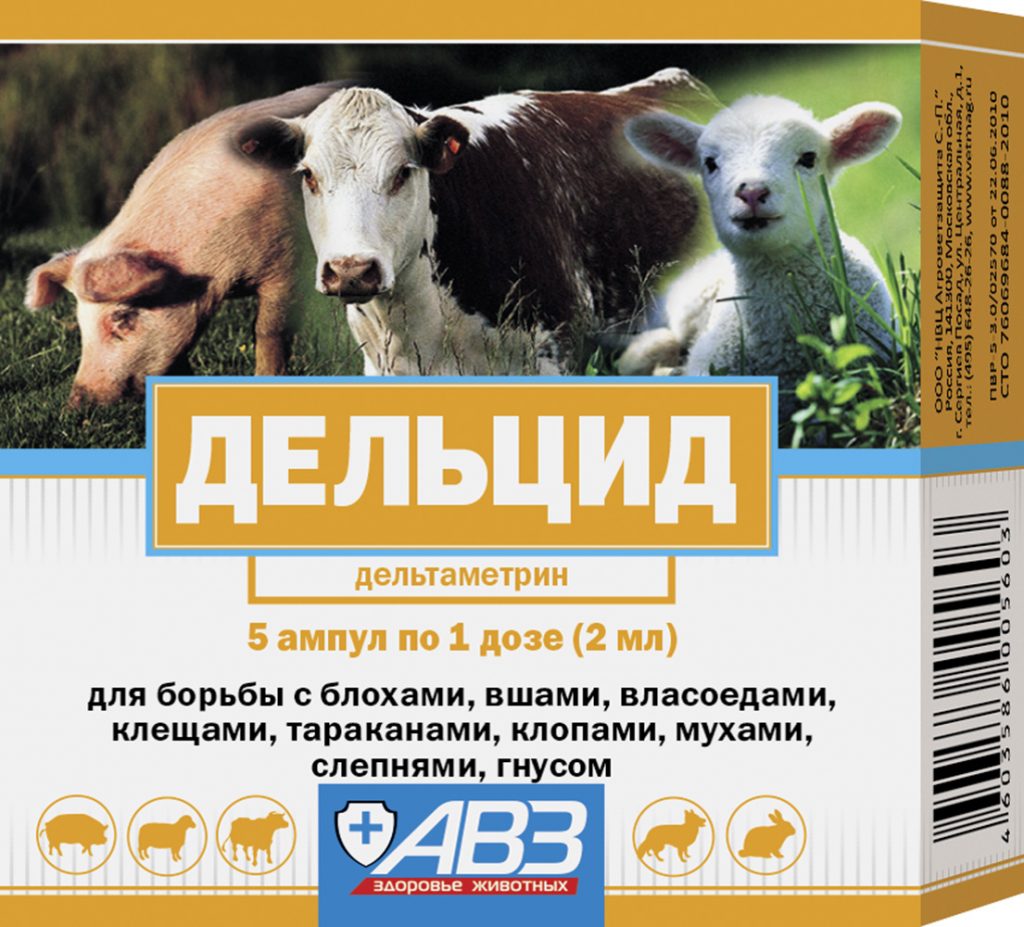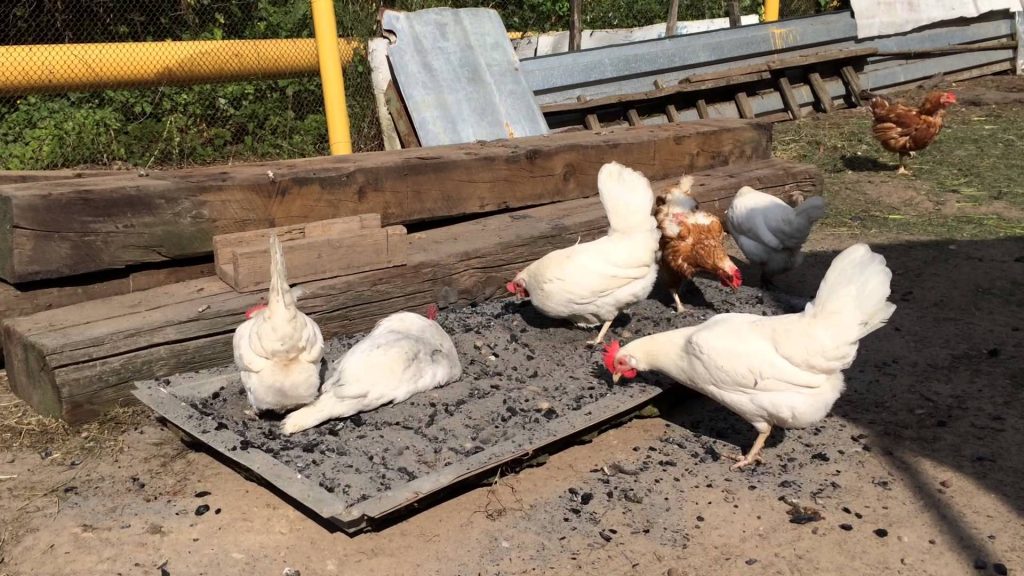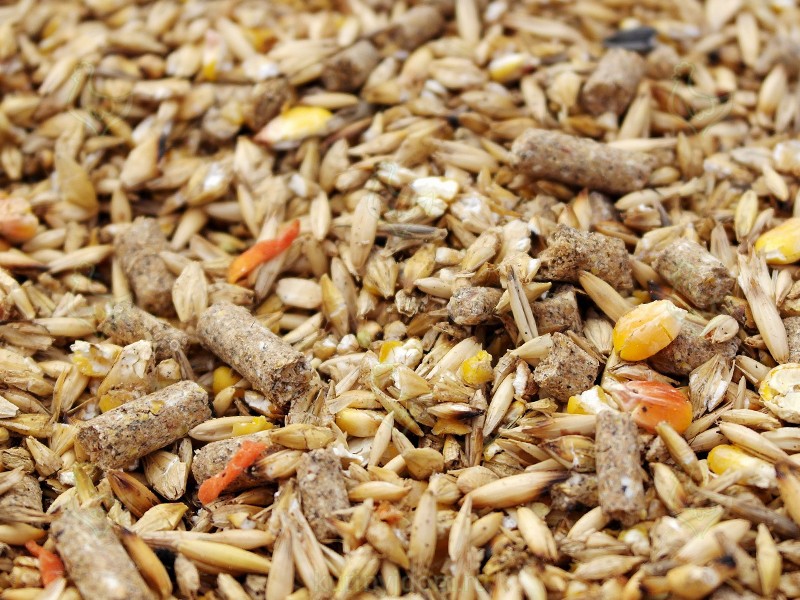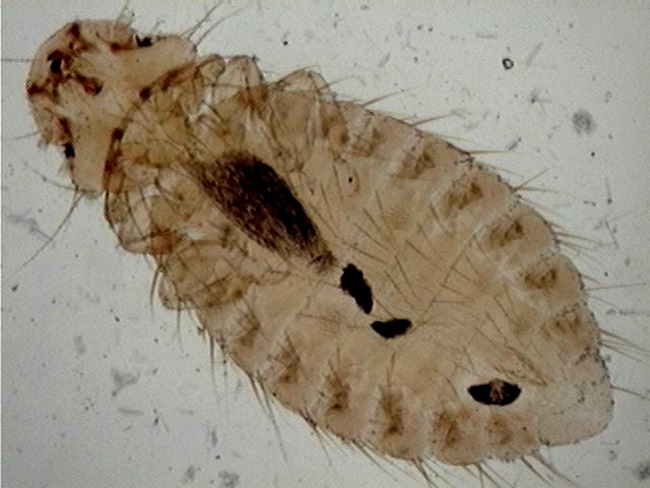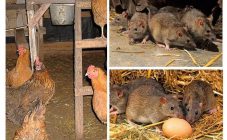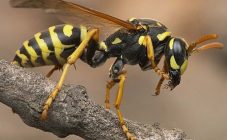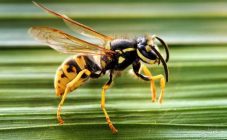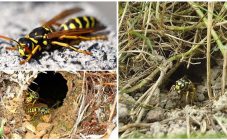Content:
The first sign of a parasitic skin disease in chickens is the strange behavior of individual individuals, of which there are more and more every day. Chickens worry, scratch, peck feathers from themselves and from each other, remaining literally bald.
This strange behavior suggests that parasites, scientifically called mallophages, have been bred in the poultry house, and among the people in different ways - downy lice, downy lice, downy eaters and chicken lice, there is also another group of parasites - chicken fleas and ticks. They differ among themselves, there are 2300 known types of them in nature, but the essence is the same and the way of life is common, therefore, the treatment for all is practically the same.
Microscopic insects, barely visible to the human eye, of yellow-brown shades, deftly move along the body of the chicken. They have no wings, but the legs are very tenacious. They feed on down, gnaw through the base of the feather and eat up keratinized skin particles. They calmly survive without chicken - on the walls and floor of the chicken coop, in the litter, they do not die even when the temperature changes and without food for up to 8 days. They lay eggs, after 2-3 weeks a new generation hatches. Each chicken can simultaneously live up to 10 thousand individuals. A selection of photos on the network can show what a chicken eater looks like.
Ways of infection of chickens
Chickens become infected with parasites through:
- litter;
- poor quality feed;
- perch;
- street dust;
- from another chicken.
Roosters play a significant role in the dispersal of parasites in the chicken coop. They clean their plumage less often and do not tend to take dust and ash baths. Chickens can also become infected with a feather eater from the owner, even sitting in cages and closed chicken coops. A person can bring parasites on clothing and outdoor shoes.
It contributes to the rapid spread of keeping birds in poorly ventilated damp areas, dirty litter, exceeding the standards of keeping and free range, allowing contact with wild birds. As a result of infection, chickens lose their appetite, lose weight and lose weight. Young animals and chickens grow poorly, adult chickens reduce egg production. Decorative breeds of chickens lose their beautiful plumage, which is unpleasant for aesthetes-chickens.
A chicken infected with parasites and weakened becomes an easy prey for infectious diseases that penetrate the bloodstream through bites or develop on wound surfaces. In the absence of timely treatment and preventive measures, a death can begin very soon.
Chicken feather eater: how to get rid
To get rid of puffy eaters in chickens, competent treatment and disinfection of bird habitats is necessary.
The infected bird is immediately isolated and treatment begins, healthy chickens are treated for prophylaxis with insecticides, and a total general cleaning is carried out using disinfectants.
Preparations for all types of parasites
Many farmers call Butox 50 the best drug for the treatment of downy eaters in chickens. It allows you to comprehensively treat chickens, premises and bedding by spraying. Chickens can even be bathed in its solution.It affects all types of ectoparasites and destroys them completely with one treatment, if it was carried out carefully. Diluted 50-100 ml of solution per hundred liters of water.
The Russian analogue of Butox is Delcid, the drug for chickens can be used, like Butox, for the complete treatment of poultry and premises. How to use Delcid for chickens correctly can be found in the instructions for use.
Another effective drug is Incur, the instructions for use for chickens assume two treatments with a two-week break. The drug Operin has a similar effect.
How else to get rid of chicken lice? Such preparations for pets as drops Bars and Stronghold will help, although they will have to be processed several times periodically.
The sprays Frontline and Insectol, sprayed under the wings and tail of the hens, will help remove the feather eater in chickens.
Fleas and lice in chickens are excellently treated with preparations containing ivermectin, used in tablets and subcutaneously.
It is necessary to work with preparations, especially concentrated ones, with gloves, avoid contact with eyes, on the mucous membrane of the nose and mouth. If spilled, rinse with plenty of cold water. Store locked up and out of reach of children.
Celandine Powder, applied under the wings of a bird, which has a deterrent effect, will also help to fight the lice.
All these preparations are suitable for the treatment and prophylactic treatment of adult livestock and young animals over the age of three months; they are too toxic for chickens.
Correct use of insecticidal products
- Aqueous solutions for bathing, spraying poultry and premises are prepared strictly in accordance with the instructions in the attached instructions, they are used in compliance with all precautions.
- Sprays are sprayed under the wings and tail of the bird, a prerequisite is that the head must be covered so that the agent does not get into the eyes and on the mucous surfaces of the chickens.
- The drops are applied to the withers, directly on the skin, and not on the feathers of the bird.
Chicken treatment
It is extremely difficult to fight ectoparasites, fleas and ticks in chickens, they have a low weight and weak immunity. You can try to spray them with Nyuda children's spray or use traditional medicine.
The struggle with folk remedies against parasites in chickens has been going on for more than one hundred years, and many remedies have been tested by chicken breeders in modern conditions and have shown good results.
Traditional methods of getting rid of chickens from chewing lice, fleas and ticks
What to do to rid chickens of parasites and cure them with folk remedies?
Here is a selection of recipes that have long been used by our ancestors:
- A mixture of kerosene and bite in equal proportions. A glass of such a product is diluted in a bucket of water and the bird is bathed in this mixture.
- Strong alcoholic infusion of hellebore root. Half a glass of infusion is diluted in a bucket of water and sprayed under the wings and tail of the bird.
- Infusion of chamomile pharmacy. Rub directly into the skin of the chicken for ten days. This method of treatment is also suitable for the chicken.
- Ash and sand baths. In general, they should be present in the chicken coop and on the walk all the time. Chickens, bathing in them, will get rid of parasites themselves.
- A mixture of ammonia, kerosene and benzene in equal proportions can scare off any parasite with its smell.
- Powder or infusion of wormwood applied in the chicken coop or on the plumage of chickens will scare off parasites.
- You can add wormwood, tansy and chamomile to the litter for prevention and as a deterrent.
Prevention
To protect your chickens from this scourge, it is necessary to maintain cleanliness and maintain order in the chicken coop daily.Litter and excrement should be constantly removed and removed from the premises to a specially designated area where chickens have no access. No heaps on the walks and in the corner - this is a breeding ground for disease and headache from long and tedious treatment, which can last up to six months. It also requires:
- Regularly process roosts and feeding areas with boiling water so that chewing lice and feather eaters do not have a chance to stay in the chicken coop.
- Remove leftover feed residues so as not to create a favorable environment for parasites and not to breed dampness.
- Do not allow poultry to come into contact with wild brethren that are quite capable of bringing parasites on their plumage. The walks should be covered or covered with a net.
- Do not exceed the poultry area standards. Crowding leads to lightning-fast infections from each other and through the litter.
- Ventilate the premises regularly, even in the winter season, as dampness and stagnant air are the most attractive environment for ectoparasites.
- Install ash and sand baths on the walkways and in the chicken coop, keep them clean and change the contents as they become dirty.
- Buy feed only from trusted manufacturers.
- Conduct a preventive visual examination of birds to identify individuals with behavioral deviations - itching, pulling out feathers, sad, emaciated, and so on.
- To carry out disinfection of premises with Butox or its analogs every three months.
- Do not go to your chickens in clothes and shoes, in which you have visited someone else's chicken coop or at the market where they sell animal feed.
- A chicken family that has just arrived at the farm must be kept in strict quarantine for a couple of weeks.
- Getting rid of rodents, which may well bring the disease on themselves.
Can chicken fleas and lice settle and live on humans? No, they cannot! Of course, they can jump or crawl on a person while communicating with an infected bird, and in some cases even bite; they will not stay on a person for a long time.
A person's lower body temperature and thicker skin will not allow them to feel comfortable. Parasites will prefer to leave an inhospitable host and die, unable to find food for themselves on a human body. Other animals such as cats, dogs, pigs, cows will not be suitable for chicken parasites. But they have their own.
It is easier to prevent any disease by following the established norms than to treat it for a long time and thoroughly.

